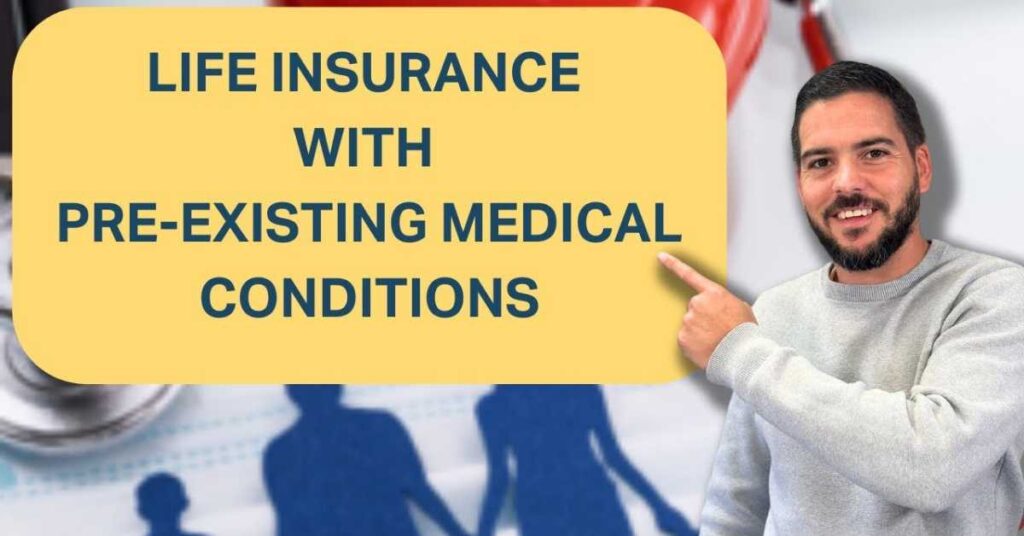Email: [email protected]


Obtaining life insurance with a pre-existing medical condition can be a daunting task, but it’s not an insurmountable one. While it may require more effort and research, many insurance companies offer policies specifically designed for individuals with pre-existing conditions, such as diabetes, heart disease, or cancer. However, the process and requirements may vary significantly, and it’s essential to understand the nuances to find the best coverage for your needs.
In this comprehensive guide, we’ll walk you through the step-by-step process of getting life insurance with a pre-existing medical condition. From understanding the types of policies available to preparing for the application process, we’ll cover the essential information you need to know. Whether you’re looking for term life insurance, whole life insurance, or a guaranteed issue policy, we’ll help you navigate the complex world of life insurance and find the right coverage for your unique situation.
Gathering information about your diagnosis, treatment, and medical history is crucial when seeking life insurance with a pre-existing condition. Know your condition’s name, type, causes, symptoms, and prognosis. Understand your treatment plan, medications, and any lifestyle changes recommended by your doctor. Keep track of your medical appointments, test results, and any changes in your condition.
This knowledge will help you accurately answer insurance application questions, understand policy exclusions or limitations, and make informed decisions about your coverage. Being informed and prepared will give you confidence and control throughout the insurance process.
Researching insurance companies is a critical step in finding the right life insurance policy for your pre-existing condition. Look for companies that specialize in covering individuals with pre-existing conditions. Compare their policies, premiums, and coverage options.
Check their financial strength and reputation by reviewing ratings from independent rating agencies like A.M. Best, Moody’s, and Standard & Poor’s. Read reviews and ask for recommendations from friends, family, or a licensed insurance agent. This research will help you identify companies that cater to your needs.
Consulting an independent agent can be a wise decision when seeking life insurance with a pre-existing condition. Independent agents work with multiple insurance companies, giving them a broader understanding of the market. They can help you navigate the complex process, identify companies that cater to your needs, and find the best policy for your situation.
Independent agents are not tied to a specific company, so they can provide unbiased guidance and recommendations. They can also help you compare policies, premiums, and coverage options, increasing your chances of finding the right coverage for your pre-existing condition.
When applying for life insurance with a pre-existing condition, it’s essential to be thorough and accurate. Submit your application, providing detailed information about your condition, medical history, and treatment. Attach supporting documents, such as medical records and test results, to strengthen your application.
Disclose all relevant information, including medications, hospitalizations, and doctor visits. Be honest and transparent, as failure to disclose information can result in policy denial or revocation. Ensure you understand the application process, and ask questions if needed. A complete and accurate application will help facilitate a smooth underwriting process.
A medical evaluation is a crucial step in the life insurance application process, especially with a pre-existing condition. The evaluation assesses your overall health and the severity of your condition. A licensed physician will conduct a physical examination, review your medical history, and order diagnostic tests (e.g., blood work, urine tests) if necessary.
Be honest and transparent about your health, as inaccurate information can impact your application. The evaluation results will help the insurer determine your premium rates and coverage eligibility. In some cases, a medical evaluation may not be required, and the insurer may rely on your medical records and application answers instead.
Click on the next page button to continue enjoying the article!












To provide the best experiences, we and our partners use technologies like cookies to store and/or access device information. Consenting to these technologies will allow us and our partners to process personal data such as browsing behavior or unique IDs on this site and show (non-) personalized ads. Not consenting or withdrawing consent, may adversely affect certain features and functions.
Click below to consent to the above or make granular choices. Your choices will be applied to this site only. You can change your settings at any time, including withdrawing your consent, by using the toggles on the Cookie Policy, or by clicking on the manage consent button at the bottom of the screen.
